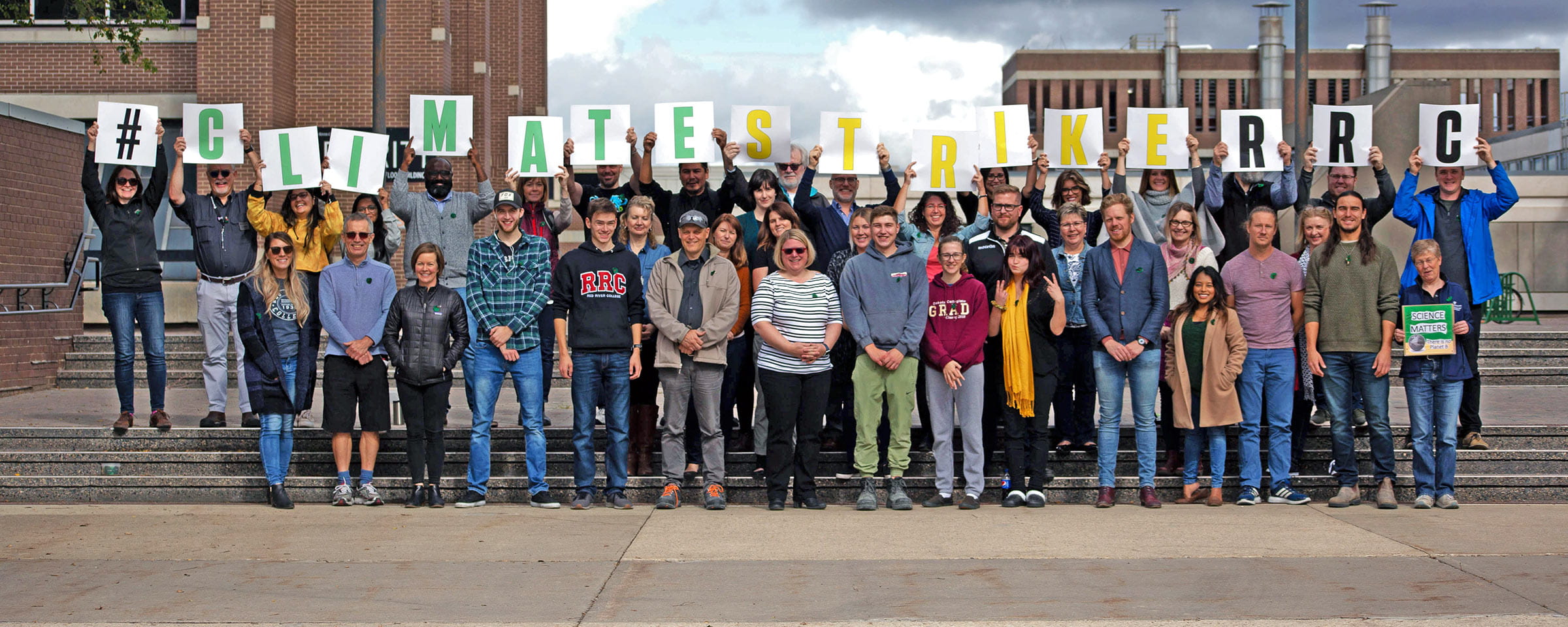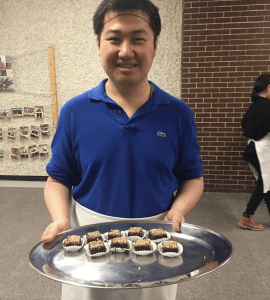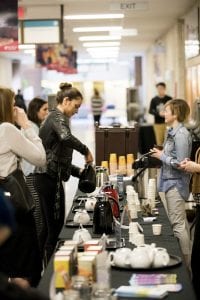



Fair Trade Campus Week is all about raising awareness about Fair Trade and celebrating fairtrade products, like the ones we sell at RRC Polytech. Campuses across Canada participate in the week-long event in September.
Celebrations have included lunch-and-learns, coffee breaks, markets featuring fairtrade merchandise from Ten Thousand Villages and our Campus Store, and fairtrade prizes won by participating in mini-challenges and activities. And what’s Fair Trade Campus Week without food? Free fairtrade treats we’ve offered in the past include:

Don’t miss our next Fair Trade Campus Week! Subscribe to our blog and follow us on Facebook, Twitter and Instagram to get the latest news about all of our upcoming events.
Fairtrade guarantees the products that you buy are produced in a socially, financially and environmentally responsible way. In the free market, worker’s rights in developing or underdeveloped countries are not always protected. Under Fairtrade, workers are part of cooperatives where they are ensured stable pay, better working conditions, and local sustainability.
You might have noticed that we use two versions of the word: Fairtrade and fair trade. The word “Fairtrade” is trademarked, referring only to Fairtrade organizations like Fairtrade Canada, or products certified through the Fairtrade International system. “Fair trade” refers to the general movement and can include products that do not carry the FAIRTRADE mark.

Keeping track of where the products you buy come from can be difficult. The FAIRTRADE logo makes it easy, making a promise that the product you are buying is ethical and lives up to rigorous standards. There are over 7,000 Fairtrade products in Canada with the FAIRTRADE logo.
Here are some things that make Fairtrade unique:
The producers of Fairtrade products have an equal voice in decision-making within Fairtrade’s General Assembly and Board of Directors. They have 50% say in decisions on use of resources, setting prices, premiums and standards, and overall strategy.
The Fairtrade Minimum Price is the minimum price that must be paid by buyers to producers in order to meet Fairtrade standards. This price covers the cost of sustainable production and provides a safety net for farmers, ensuring they will have a stable income. When the market price is higher than the Fairtrade minimum price, the producers get the market price.
The Fairtrade Premium is an additional sum of money given to producer cooperatives that they can use as they see fit. It keeps communities stable and healthy by enabling them to purchase things like equipment, water wells, or hospitals, or to invest in projects to adapt to climate change.
Fairtrade has a strong set of environmental standards to protect ecosystems. For example, water is sourced sustainably, used sparingly and sustainable irrigation practices are applied. GMOs are also forbidden. To learn more, click here.
The burden of climate change is felt strongest by those living in rural communities in developing countries. Particularly affected are farmers who have to deal with unstable income and crop yields. Fairtrade helps communities fight the effects of climate change so that they can thrive.
Under the Fairtrade Climate Standard, small-scale farming communities complete local climate change projects for credits. Projects can include renewable energy projects, such as harnessing wind energy; energy efficiency projects, such as improved cook stoves; or forestry projects, such as planting new shade trees. For each project that reduces CO2, producers get carbon credits. These credits are bought by companies who want to take responsibility for their own environmental impact and make up for their CO2 emissions.
Fairtrade carbon credits are particularly helpful to coffee farmers. Coffee plants, which produce one of the most popular food sources in the world, are very sensitive to fluctuations in climate. Even a one degree increase in temperature can have drastic effects on crop yields. This video shows how carbon credits helps coffee farmers.
RRC Polytech campuses are located on the lands of the Anishinaabeg, Ininiwak, Anishininwak, Dakota Oyate, and Denésuline, and the National Homeland of the Red River Métis.
We recognize and honour Treaty 3 Territory Shoal Lake 40 First Nation, the source of Winnipeg’s clean drinking water. In addition, we acknowledge Treaty Territories which provide us with access to electricity we use in both our personal and professional lives.